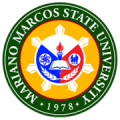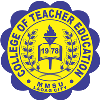US univ prof underscores AI application in remote sensing
By Daniel P. Tapaoan, Jr.
Dr. Guillermo A. Mendoza, professor emeritus of the University of Illinois (UI) in the United States, visited Mariano Marcos State University today, June 20, to present the use of Artificial Intelligence (AI) in remote sensing in a seminar held at the Center for Flexible Learning.
The former MMSU balik-scientist emphasized that the new technology is transforming the science of obtaining information about the environment, and urged the university to embark on its applications to further advance its research on natural resources and environmental sciences.
In the seminar, Dr. Mendoza discussed how AI can help in disaster response and emergency management. AI leverages computers and machines to mimic the problem-solving and decision-making capabilities of the human mind.
He also explained how Machine Learning models can monitor and predict changes in vegetation health, and how Deep Learning algorithms can classify land cover types accurately. ML uses data and algorithms to imitate the way humans learn; while DL is a set of neutral networks that simulate human behavior to learn from large amounts of data.
The UI professor emeritus also presented the Integrated Valuation of Ecosystem Services or InVEST, an open-source software model that uses environmental data to inform decisions about natural resource management.
The seminar was participated in by faculty members of the College of Engineering, College of Arts and Sciences, and the College of Agriculture, Food and Sustainable Development; and researchers of the MMSU Research Directorate, National Bioenergy Research and Innovation Center, Affiliated Renewable Energy Center, and the Coastal Engineering Research Center.
MMSU President Shirley C. Agrupis thanked the former balik-scientist for always putting the university in the list of his priority recipient institutions for his lectures. “His visit to MMSU is a manifestation of his commitment to walk with us in any development program that we are embracing,” she remarked.
Dr. Nathaniel Alibuyog, university vice president for research and extension, expressed high hopes that the seminar “would further inspire us to unlock the full potential of remote sensing in creating a brighter and more sustainable future.”
Dr. Mendoza, who hails from Isabela, first came to MMSU in 2010 to help the university develop its climate change information systems for agriculture, forestry, and natural resources. He returned in 2018 and 2019 to help propel the university as front-runner in climate change resiliency in the Ilocos region. (HLY/JVBT, StratCom)
Gallery
Dear Valued Client,
We will be introducing our newly upgraded website on October 31, 2024 – offering faster access, improved navigation, and enriched content for students, faculty, partners, and stakeholders. Experience how we cultivate minds and transform futures at MMSU.

 CAFSD
CAFSD CASAT
CASAT CAS
CAS CBEA
CBEA CCIS
CCIS COE
COE CHS
CHS CIT
CIT CTE
CTE COM
COM CVM
CVM Graduate School
Graduate School




